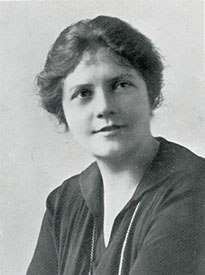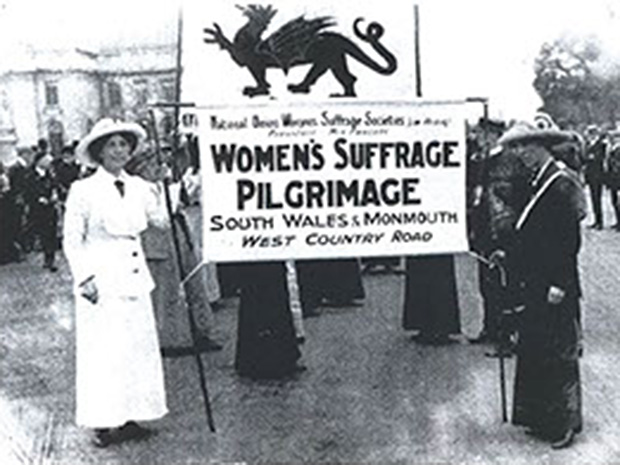In 1913, the south west division of the National Union of Women’s Suffrage Societies (NUWSS) decided to campaign in Wales but they needed a local activist to help them …
On June 23, 1913, Margaret Mackworth was arrested for “unlawfully placing an explosive substance in a letter box” in Newport.
Mrs Mackworth dropped bottles, labelled with pro-suffragette slogans, filled with damaging chemicals into a letter box on Risca Road, destroying the post inside.
After being arrested, Mrs Mackworth was sentenced to pay a £10 or face imprisonment for one month.
She declined the fine and spent five days in prison, before a hunger strike that she started on her admission forced the authorities to release her. The fine was paid anonymously on her release.

These “letter-box attacks” were common in Cardiff and Newport in 1912 and 1913 and were a militant tactic used by Suffragettes to draw attention to their cause.
Mrs Mackworth was part of the Women’s Social and Political Campaign (WSPC), a militant division of a nationwide movement to earn women the right to vote.
With the help of London-based activists, she set up the Newport division of the NUWSS and then spent her time influencing the rest of South Wales. This lead to a Cardiff group being set up, which grew to be the largest faction outside London.
She also helped organise meetings and marches in Cardiff as well as other more militant acts across Wales.

Many incidents in Wales were attributed to Margaret Mackworth. An attempted arson attack on the club house of Ely Racecourse and the interruption of an awards ceremony in Monmouthshire are examples.
She even jumped on to the running-board of the Prime Minister, Herbert Asquith’s car during an election campaign holding a banner.
On February 6, 1918, the Representation of the People Act was passed, allowing women over 30 who “occupied premises of a yearly value on not less than £5” to vote.
It took another decade for the voting rights of women become the same as men.
Dr Rachel Lock-Lewis, senior lecturer at the University of South Wales, said: “We know there was a lot of activity in Cardiff, one being the National Union of Women’s Suffrage Societies, who were a big organisation and the so-called Peaceful Campaign who organised petitions and signatures.
““There was also the the Women’s Social and Political Campaign, who took more direct and militant action because they were fed up of the slow progress and was a more high profile campaign.
“The suffragettes only caused damage to property and not people because they both felt the law, as it stood, protected property rather than people, especially women and girls.”

There were several other important suffragettes based in Cardiff.
Rachel Barrett, part of the WSPU was originally from Carmarthenshire, but became a science teacher in Penarth.
In 1907 she became an organiser for the WSPU and she edited the national WSPU news journal. She was originally part of the Newport WSPU but moved to the Cardiff headquarters. She spent time in Holloway jail and went on hunger strike.
Mary Keating-Hill was also part of the Cardiff branch and spent three weeks in jail for disorderly behaviour and resisting the police.
She was a prominent suffragette because she was a working-class women and most of them were middle-class.
Dr Lock-Lewis said: “The vote was very important as it put women-friendly legislation onto the political agenda.
“You can trace right through from the suffragettes fighting for the right to vote, to new legislation such as the Violence against Women, Domestic Abuse and Sexual Violence (Wales) Act 2015 that was pushed by Welsh labour AM, Jane Hutt.”



